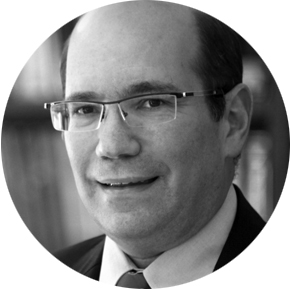Gil Troy, an American historian, the winner of the 2017 Simon Rockower Award, wrote an article “The Tragedy of Armenia’s First Prime Minister: Too Blunt and Now Forgotten” in his column for the Daily Beast. The article is devoted to Prime Minister of the first Republic of Armenia Hovhannes Kajaznuni.
“Hoping to be the George Washington of the Caucuses, Hovhannes Kajaznuni helped found the first Republic of Armenia one hundred years ago, but mostly forgotten today. First, they must learn about him. Few Armenians marked the 150th anniversary of Kajaznuni’s birth. No one knows where he is buried,” the historian wrote.
In an interview to Mediamax Gil Troy told how he learned about Hovhannes Kajaznuni, why he decided to write his story and what he knows about modern Armenia and Armenians.
How did you find out about Hovhannes Kachaznuni and why did you decide to conduct a research on his story?
Writing a weekly column on "Secret Lives" for the Daily Beast for three years, I have spent a lot of time hunting around for interesting stories about often-overlooked individuals whose stories tell a broader story that is relevant to us. Sometimes, it's tied to headlines, sometimes, it's tied to anniversaries, sometime it's just a curiosity. In poking around at the start of this year, when I saw that the spring of 1918 marked the hundredth anniversary of the Republic of Armenia -- I got curious. I have long been embarrassed as a Jew, as an American, by the politicization -- and cover up - of the Armenian genocide.
And, on a personal note, my daughter has an Armenian roommate, living in Jerusalem for the last few years we have made some Armenian friends, so I thought it would be fascinating to share with the next generation of Americans the story of Armenia from a century ago - the good, the bad, and the ugly.
And then, as I went deeper into my research, I thought Hovhannes Kachaznuni would be a great hook, a true secret life - I thought he was forgotten or unknown just by Americans - I then discovered he's overlooked in Armenia too...
You remarked in your article that Kachaznuni isn’t well known in Armenia. In your view, what could be the reason?
Without repeating what I said in my article, I think there are three reasons why Hovhannes Kachaznuni is not well known in Armenia. First, the Republic itself was a bit of a misfire on a number of ways, so, he's not quite the Armenian George Washington because the Republic didn't last.
Second, there was a conscious desire on the part of the Soviets to tell their version of history, which had little room for noble, independence-seeking and independent-minded patriots like Hovhannes Kachaznuni.
Third, there's a cost to being as brutally honest and frank as he was about his own movement - which was why some Armenian patriots went so far as to destroy his manifesto and books about him when they found them in libraries. He didn't give what we in America would call a sanitized, Disneyfied, version of the Republic - he acknowledged some flaws (and then some of his words were further caricatured by Turks and Communists to advance their respective agendas).
Have you conducted a research on the history of the first Republic of Armenia? What are your thoughts about the influence those events could have on the destiny of Armenia and its path to becoming a state?
I am an American historian who dabbles once a week in these different stories, so I am not an expert on the history of Armenia by any stretch. Still I think the story of Hovhannes Kachaznuni and the first Republic is an important cautionary tale - a warning to Armenia - and other small countries in volatile regions - about the fragility of any state, about the need for national unity, and about the need to be wary of alliances with outsiders - but the need to often be allied with them nevertheless. It's also an important story about truth-telling and taking stock of your nation's achievements and shortcomings, being willing to be self-critical.
Have you ever been to Armenia? What do you know about modern Armenia?
I have never been -- would love to visit. I know more than most Americans - which, to be frank, isn't a whole heckuva lot, but through interactions with various friends and acquaintances, and through some research, I know enough to admire this plucky people who have absorbed terrible blows from the Turks and then the Soviets and yet keep their heritage and their values alive and thriving. That inspires me as an American who believes in nationalism; it inspires me as a Jew who believes in Zionism, meaning Jewish nationalism, and particularly appreciate the story of what we could call another "Comeback Nation" or an Eternal People; and it inspires me as a human being, who believes in the power and resilience of the human spirit, individually and collectively.
In the article you also covered the Armenian Genocide, giving precise estimations as a historian on the tragedy of 1915. What do you think about the role that historians can play in the official recognition of the Armenian Genocide by the United States?
This, frankly, was part of my agenda in writing. In a longer version - or perhaps another article - I would love to explore the role of Ambassador Henry Morgenthau Senior, America's ambassador to Turkey who in 1915 boldly warned the US "a campaign of race extermination is in progress."
His memoir Ambassador Morgenthau's Story came out a century ago in 1918 - -and we should use this anniversary as historians and humanists to demand that the US government and the rest of the world stop ignoring the facts and politicizing history. This honorable man, this honest observer, called his chapter on the Armenians "The Murder of a Nation," describing the atrocities as a "cold-blooded, calculating, state policy."
Shame on us for not knowing enough about these crimes. Shame on us for burying it to indulge Turkish sensibilities. I am not interested in recognizing the genocide to make Turks feel bad - or frankly Armenians feel good (meaning validated). But, as a historian, burying the truth offends me, scares me; it gives me the willies. And, as a humanist, the more we learn about how the Young Turks - the reformers, the supposed modernizing good guys - could be involved in this mass slaughter, the more we can learn about how and where nationalism goes wrong, which can help us make sure -- as liberal nationalists - that nationalism goes right, too!
Marie Taryan talked to Gil Troy



























Comments
Dear visitors, You can place your opinion on the material using your Facebook account. Please, be polite and follow our simple rules: you are not allowed to make off - topic comments, place advertisements, use abusive and filthy language. The editorial staff reserves the right to moderate and delete comments in case of breach of the rules.